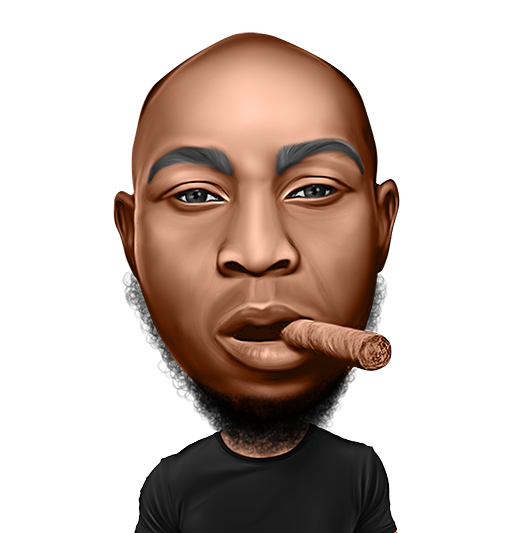Transcribed interview by Visual Collaborative
Originally published in Voyager June 2019
4 min read

Seun Kuti is a Nigerian musician and the youngest son of legendary afrobeat pioneer Fela Kuti. Seun leads his father’s former band Egypt 80. As a special feature of in our Grand Masters interview series, he discusses his observations on the consciousness of his country and the continent, his Grammy nomination, and the types of brands, people or businesses he is likely to align with.
(VC) The country Nigeria has a growing number of conscious people but yet there has been a sluggish restoration of normalcy which is enjoyed by many other nations. What are your general thoughts on why this is happening?
(Seun Kuti) This is because many of the so-called consciousness that is being showcased in Nigeria is not based on class analysis, it is steeped in rhetoric and cannot go to the core of the issues that we go through or to find the solutions for the problems. I think what we embark on and call consciousness in Nigeria is the perfection of oppression, we are looking for a way to perfect this extractive and oppressive system, not really to change it or to find something new to replace it.
(VC) Your album Black Times was nominated for a Grammy, this would be a big deal for many in the music industry, hows does this make you feel and what is your advice to the up and coming who look up to you?
(Seun Kuti) The young people looking up to me should work hard, that’s what has made things happen for me the most. The amount of hard work you put in and the dedication you have for your craft.
I am not really into the exploitation or extraction mode of business that is being done in Africa by both politicians and private business men. But if someone is really genuinely looking to uplift the people, yeah man thats something I am looking forward to.
(VC) Storytelling is perhaps one of the most impactful forms of music for performers, outside the African market how has your own music faired alongside other activists?
(Seun Kuti) I don’t really check how my music fairs with other artists, even if they are not activists. I don’t really compare my music to anybody. Because music is not sports so comparisons don’t even fit in the narrative.
(VC) Observing the rising despondency of political movements in parts of Nigeria and some places of western African, as an activist are you more critical about your own music career or more optimistic given the trajectory of the present times?
(Seun Kuti) [Seun Laughs] well you know, I think my music gives me a lot of Joy. And for that reason, I am always optimistic. As long as I am happy doing what I am doing. As long as I am sure it can bring me happiness, that’s all the optimism I need to keep going.
(VC) In your quiet or noisy moments, how do you get inspired? What makes Seun Kuti creates the music he does. Do you seek spirituality or get psychological like others in the creative industry for muses?
(Seun Kuti) Well, I let my environment inspire me. I am not a spiritual per se. I think how my environment and society interact with each other is my greatest source of inspiration, you know?
(VC) At this stage of your professional milestones and accomplishments, If you could collaborate with any brand or public figure in business who would it be and why?
(Seun Kuti) The only reason I will collaborate with any brand of a public figure is that we are working together to uplift motherland people. I am not really into the exploitation or extraction mode of business that is being done in Africa by both politicians and private businessmen. But if someone is really genuinely looking to uplift the people, yeah man that’s something I am looking forward to.
(VC) What kind of work or impact can the African continent and its diaspora expect from Seun Kuti within the next 5 years?
(Seun Kuti) I really don’t know what I will be doing in the next minute. I might even be dead you know? so I don’t really plan that far. [Seun Laughs] Most people think I am that serious. Nah! I just take it one step at a time.